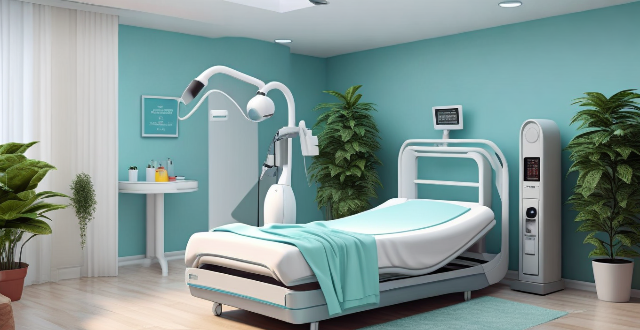The healthcare industry has been transformed by advancements in technology, including electronic health records, telemedicine, wearable devices, medical imaging tools, and robotic surgery. These innovations have improved efficiency, expanded access to care, and enhanced patient outcomes. As technology continues to evolve, it will play an increasingly important role in shaping the future of healthcare.

The Impact of Technology on the Healthcare Industry
Introduction
The healthcare industry has undergone a significant transformation in recent years, largely due to advancements in technology. From electronic health records to telemedicine and wearable devices, the integration of technology has revolutionized the way healthcare is delivered and managed. In this article, we will explore how technology has changed the healthcare industry.
Key Points
1. Electronic Health Records (EHRs)
- EHRs have replaced traditional paper-based record systems.
- They provide real-time access to patient information, improving efficiency and reducing errors.
- EHRs also enable better coordination between different healthcare providers.
2. Telemedicine
- Telemedicine allows patients to consult with doctors remotely using video conferencing tools.
- This reduces travel time and costs for both patients and healthcare providers.
- Telemedicine also expands access to specialized care for those living in rural areas or with limited mobility.
3. Wearable Devices and Mobile Apps
- Wearable devices such as fitness trackers and smartwatches monitor vital signs and activity levels.
- Mobile apps help users manage their health by tracking diet, exercise, and medication intake.
- These technologies encourage individuals to take an active role in their own health management.
4. Medical Imaging and Diagnostic Tools
- Advanced imaging techniques like MRI and CT scans provide more detailed images of internal structures.
- Diagnostic tools like ultrasound machines and X-ray machines are now portable, allowing for faster diagnosis and treatment in emergency situations.
- These technologies improve accuracy and reduce the need for invasive procedures.
5. Robotic Surgery and Minimally Invasive Procedures
- Robotic surgery allows for greater precision and control during complex procedures.
- Minimally invasive procedures reduce recovery time and complications compared to traditional surgeries.
- These advancements lead to better outcomes for patients while minimizing risks associated with surgery.
Conclusion
Technology has had a profound impact on the healthcare industry, improving efficiency, expanding access to care, and enhancing patient outcomes. As technology continues to evolve, it will undoubtedly play an increasingly important role in shaping the future of healthcare.